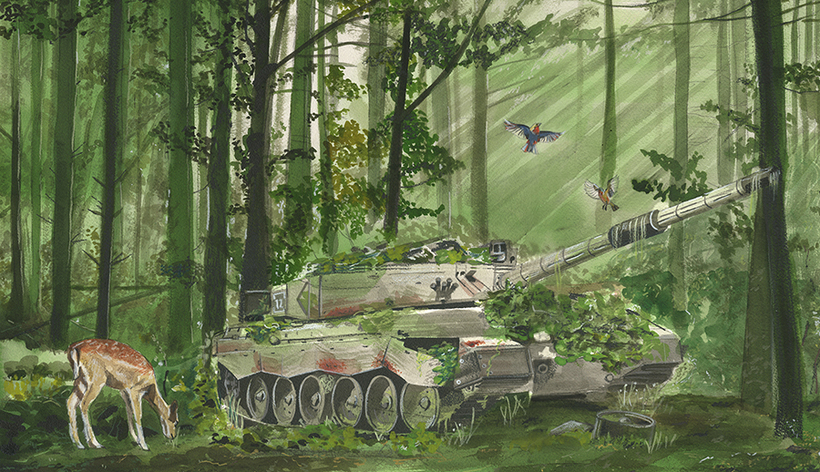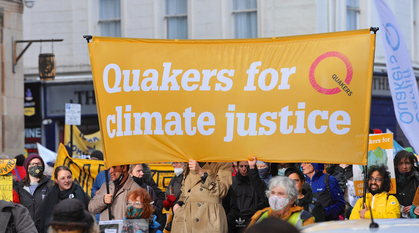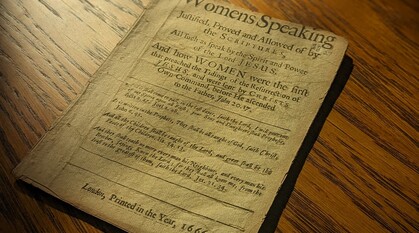Why, on this International Peace Day, we’re talking about climate justice
Charlotte Cooper encourages us to take part in the first ever Global Week of Action for Peace and Climate Justice.

21 September marks the International Day of Peace and the start of the first ever Global Week of Action for Peace and Climate Justice; an initiative which Quakers in Britain have been coordinating with an international network of organisations. This year, peace and climate justice movements will be coming together in recognition of their shared vision of a world in which human and natural life can thrive.
How are peace and climate justice connected? For a start, it's increasingly understood that war and militarism are driving climate breakdown. Recent estimates suggest that the world's militaries are responsible for 5.5% of global greenhouse gas emissions – about twice that of the civil aviation industry. When you hear that the US military is the world's biggest institutional user of petroleum, you can see how the struggles for a world beyond war and fossil fuels are connected.
At Quakers in Britain we have been looking beyond military emissions, to try to get to grips with how war, militarism and climate injustice are connected at their roots. In recent years Quakers have come to view climate breakdown as driven by a dominant economic system based on profit and extraction for the benefit of the few, at the cost of human and natural life.
We are coming to understand how war and militarism have sustained that economic system, whether that be through inter-state wars fought partly for control of oil, or militaries and police suppressing resistance to mining and other extractive projects. As Nnimmo Bassey environmental activist and chair of Oilwatch Africa – says, “Resource-extracting corporations operate behind military shields". In this unjust global order, there is a striking overlap in who wins (fossil fuel, arms and border industries) and who loses (communities in the majority world who are most likely to be on the frontlines of both war and climate breakdown).
Both climate breakdown and militarism are destructive of human life and the natural world, and we can't address one without the other. If we don't transform our militarised systems of governance, then they will shape the response to climate breakdown - a problem some have called the 'militarisation of climate breakdown'. This means militaries, arms and border industries accepting that climate change is happening and that it will make the world more dangerous and therefore trying to lead the response.
So-called 'green' weapons are being developed and marketed as a progressive way to keep fighting wars. For example, the arms company Lockheed Martin is already investing in the development of solar-powered submarines. There is also a danger that militaries and police increasingly enforce the unjust extraction of the critical minerals needed for renewable energy production. Politicians pushing for bigger armies and harder borders to secure resources for a narrowly defined 'us' is not a climate just world.
If our vision of peace doesn't embrace climate justice, at best we are aiming for a world defined by the absence of violent conflict, but with injustice and the roots of violence bubbling beneath the surface. Quakers understand 'deep peace' to mean not solely the absence of violence, but the flourishing of loving and just relationships. We can't hope to reach such a deep peace without taking on a system in which those who did the least to cause the climate crisis suffer its worst impacts, while a minority continue to profit from fueling it.
So what can you do, if you're persuaded that peace and climate justice are two sides of the same coin? Starting to reach out across movements is a great first step. While some conversations between peace and climate justice movements have been going on for a long time, many are just beginning.
I also encourage everyone to check out the program of events for the Global Week of Action for Peace and Climate Justice, and attend anything that piques your interest. We are delighted with the response to the initiative in its first year – there are around fifty events and actions taking place across several continents, varying from international webinars to local vigils, and from letter-writing campaigns to cultural events.
Northern Friends Peace Board are encouraging Quakers to write to their MPs about the connections between climate, militarism and security, and have provided some helpful material to support this. Our partners War Resisters International have organised a webinar to bring people together, featuring some brilliant anti-militarist and climate justice activists. However you choose to take part, I hope you find the week of action inspiring and the start of stronger relationships between peace and climate justice movements.
No climate justice without demilitarisation!


